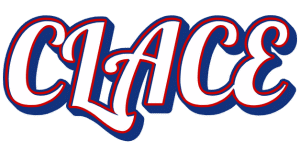Government U-Turn On Social Security Payments — Paper Checks Return For Millions — Who Still Qualifies
In a dramatic reversal, the Social Security Administration (SSA) has backtracked on its previously announced plan to phase out paper check payments entirely by September 30, 2025.
The decision to maintain paper check access comes after widespread concern for the small—but vulnerable—portion of beneficiaries who depend on them.
Here’s what you need to know about who still qualifies and how to secure this critical payment method.
Phase-Out and Abrupt Reversal
Initially, SSA signaled that all benefit payments would transition exclusively to electronic funds—either direct deposit or the Direct Express® debit card.
Paper checks were slated to end on September 30, 2025, as part of a government-wide effort to modernize payments, reduce costs, and combat fraud.
However, due to pushback, particularly concerning accessibility for certain groups, SSA clarified that paper checks will remain available for those who qualify under specific hardship criteria. Individuals meeting these criteria can still receive their benefits in paper form with an approved waiver.
Who Still Qualifies for Paper Checks?
Only beneficiaries meeting at least one of these conditions are eligible:
- Age 90 or Older
- Suffering from a Mental Impairment that makes electronic payments unviable
- Living in a Remote Area lacking reliable internet or banking infrastructure
Those who meet any of these criteria can apply for a waiver through Treasury to continue receiving paper checks.
Breakdown: Payment Options & Eligibility
| Beneficiary Type | Payment Options | Notes |
|---|---|---|
| 99% already on electronic direct deposit | No changes needed | Option remains seamless and secure |
| Under 1% receiving paper checks | Must switch to direct deposit or Direct Express® | Notices are being sent proactively |
| Qualify for waiver (age 90+, mental/remote) | Paper checks continue with approved waiver | Must apply via Treasury before Sept. 30 |
| Pending waiver approval | Paper checks may continue temporarily | Risk of payment disruption if waiver denied or delayed |
Why SSA Reversed the Decision
Several factors led to this pivot:
- Around 500,000 beneficiaries (0.8%) still rely on paper checks. Many are elderly, disabled, unbanked, or lack internet access.
- Critics raised valid concerns about excluding the most vulnerable.
- Senators, including Senator Elizabeth Warren, pressed SSA to ensure no one would be left behind in the transition.
As a result, SSA assured that paper checks will continue for those with approved waivers, reaffirming support for all beneficiaries.
What Beneficiaries Must Do Now
- Check for Notices from SSA explaining the transition and waiver process.
- Switch to Electronic: If possible, enroll in direct deposit or request a Direct Express® card.
- Apply for a Waiver if eligible:
- Call Treasury’s Electronic Payment Solution Center
- Or complete the waiver form stating your hardship (mental, remote location, or advanced age)
- Act Before Deadline: Waivers must be approved by September 30, 2025, to prevent delays.
- Track Payment Status: Especially if your waiver is pending—authorize tools are available online or by phone.
Why It Matters
- Security: Paper checks are up to 16 times more likely to be lost, stolen, or delayed compared to electronic transfers.
- Efficiency: Electronic payments cost a fraction of paper checks and reach recipients faster.
- Equity: Maintaining paper check access prevents disenfranchising those with limited financial or technological access.
- Cost Savings: Each paper check costs around 50 cents, while electronic payments cost under 15 cents, saving the government millions annually.
The SSA’s reinstatement of paper check options reflects a critical balance between modernization and compassion.
While the shift to electronic payments is oriented toward efficiency and security, the agency recognized that a portion of beneficiaries truly needs traditional checks.
As of now, eligible individuals—aged 90+, with mental impairments, or living in remote locations—can still receive checks, provided they apply and receive a waiver. With the deadline approaching, it’s essential to act swiftly to safeguard uninterrupted benefits.
FAQs
Yes—SSA rescinded the total ban and will continue issuing paper checks to beneficiaries who receive an approved waiver.
Benefits recipients who are 90 or older, have a mental impairment, or live in a remote location lacking electronic banking access can apply for a waiver.
Your payments may be delayed or disrupted unless you switch to an electronic option or have an approved waiver in place.




